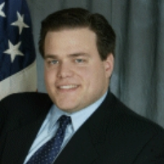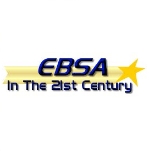Pensions are a vital source of retirement income for most Americans. According to the Department of Labor, America's private sector pension and retirement savings system includes approximately 730,000 plans with assets totaling close to $4.9 trillion and covering more than 100 million participants. The Department of Labor's Employee Benefits Security Administration (EBSA) is the primary agency responsible for protecting private pension plan participants and beneficiaries from the abuse or theft of their pension assets by enforcing the Employee Retirement Income Security Act of 1974. Because private sector pensions are second only to Social Security in providing individuals' retirement income, effective oversight of the private pension industry's management of these assets is critical to ensure the economic security of workers, retirees, and their families. Yet, the ESBA has been criticized for failure in protecting the people from fiduciary interests, as well as for its lack of enforcement in compliance issues.
- COBRA: Consolidated Omnibus Budget Reconciliation Act
- HIPAA: Health Insurance Portability and Accountability Act
- ERISA: The Employee Retirement Income Security Act
- Abandoned Plan Program
- Compliance Assistance
- Delinquent Filer Voluntary Compliance Program
- Fiduciary Education Campaign
- Health Compliance Assistance Program
- Voluntary Fiduciary Correction Program
- Enforcement Initiatives
- Enforcement
- Exemptions
(GAO) (PDF)
Benefits Groups Call For Certain Changes In EBSA’s Proposed Regs On 401(k) Plan Fee Disclosure (Spencer's Benefits Reports)
- Table of Contents
- Overview
- History
- What it Does
- Where Does the Money Go
- Controversies
- Suggested Reforms
- Comments
- Leave a comment


- Latest News
- D.C. Public Schools will Teach all Second-Graders to Ride a Bike
- New Rule in Germany Limits Sales of Sex-Themed E-Books to 10pm to 6am
- What Happened to the 6-Year-Old Tibetan Boy the Chinese Government Kidnapped 20 Years Ago?
- U.S. Ambassador to Turkey Photoshops his Hair Color to Mock Turkish Mayor
- Mystery Artist Calls Attention to Unfixed Potholes by Drawing Penises around Them
Pensions are a vital source of retirement income for most Americans. According to the Department of Labor, America's private sector pension and retirement savings system includes approximately 730,000 plans with assets totaling close to $4.9 trillion and covering more than 100 million participants. The Department of Labor's Employee Benefits Security Administration (EBSA) is the primary agency responsible for protecting private pension plan participants and beneficiaries from the abuse or theft of their pension assets by enforcing the Employee Retirement Income Security Act of 1974. Because private sector pensions are second only to Social Security in providing individuals' retirement income, effective oversight of the private pension industry's management of these assets is critical to ensure the economic security of workers, retirees, and their families. Yet, the ESBA has been criticized for failure in protecting the people from fiduciary interests, as well as for its lack of enforcement in compliance issues.
- COBRA: Consolidated Omnibus Budget Reconciliation Act
- HIPAA: Health Insurance Portability and Accountability Act
- ERISA: The Employee Retirement Income Security Act
- Abandoned Plan Program
- Compliance Assistance
- Delinquent Filer Voluntary Compliance Program
- Fiduciary Education Campaign
- Health Compliance Assistance Program
- Voluntary Fiduciary Correction Program
- Enforcement Initiatives
- Enforcement
- Exemptions
(GAO) (PDF)
Benefits Groups Call For Certain Changes In EBSA’s Proposed Regs On 401(k) Plan Fee Disclosure (Spencer's Benefits Reports)
Comments


- Latest News
- D.C. Public Schools will Teach all Second-Graders to Ride a Bike
- New Rule in Germany Limits Sales of Sex-Themed E-Books to 10pm to 6am
- What Happened to the 6-Year-Old Tibetan Boy the Chinese Government Kidnapped 20 Years Ago?
- U.S. Ambassador to Turkey Photoshops his Hair Color to Mock Turkish Mayor
- Mystery Artist Calls Attention to Unfixed Potholes by Drawing Penises around Them






Comments